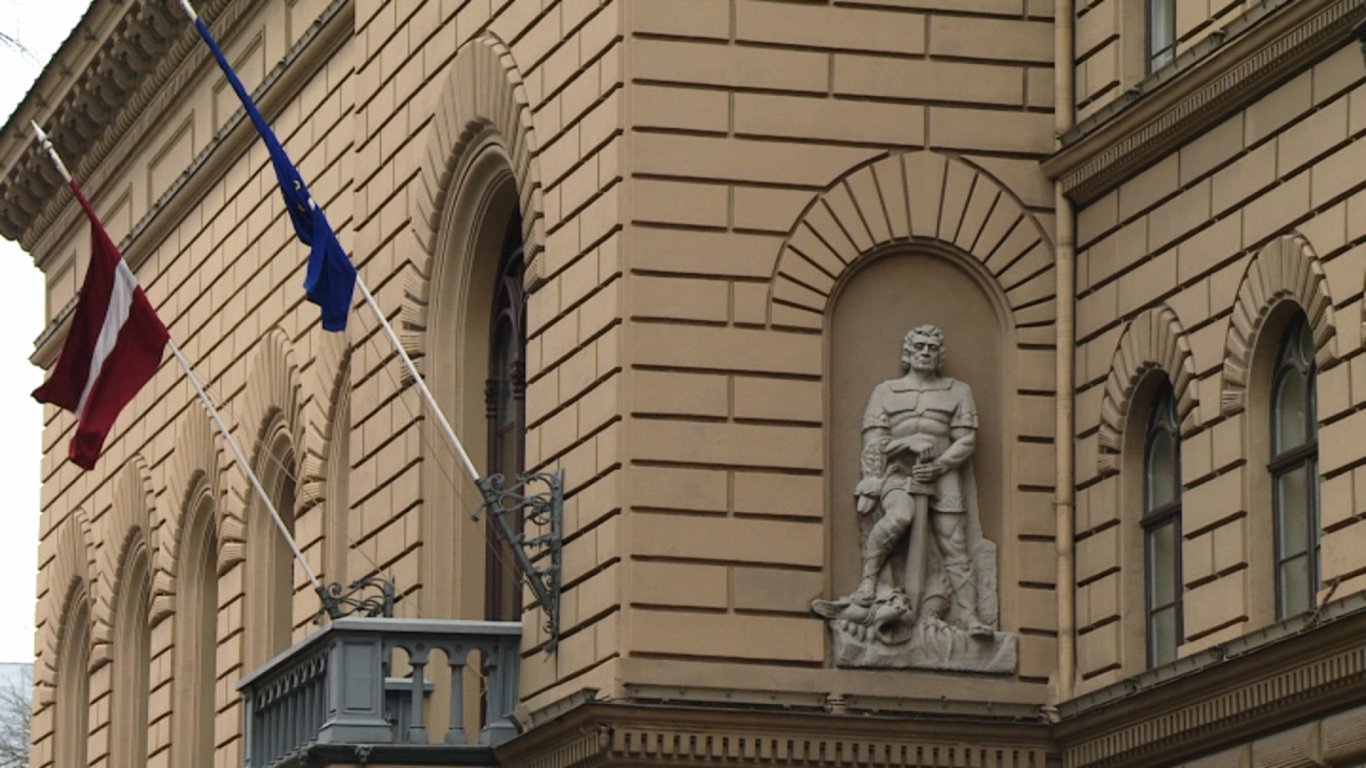It is the job of the committees to scrutinize, amend and monitor the passage of legal acts as they pass through parliament, and they play an important part in the democratic process. They also act as frequent points of contact between the Saeima and parliaments in other countries.
Among the highest profile appointments is Jānis Dūklavs of the Greens and Farmers Union, the outgoing Agriculture Minister, who will in future chair the National Economy Committee.
The Mandate Committee, which is responsible for Saeima deputies and punishes them for breaches of the rules, will be chaired by Janīna Kursīte-Pakule of the National Alliance.
Another National Alliance chair will be held by Rihards Kols, who takes charge of the important Foreign Affairs Committee.
More controversial jobs go to Martins Bondars (For Development/For! party) who heads the Budget and Finance Committee and Artuss Kaiminš (KPV LV), who will take the reins at the Human Right and Public Affairs Committee - the committee that is responsible for policy relating to public media, of which LSM is a part.
New Conservatives leader Jānis Bordāns will chair the Legal Affairs Committee.
Vita Anda Tērauda (For Development/For! party), a dual U.S.-Latvian citizen, will helm the European Affairs Committee while veteran Harmony party politician Sergejs Dolgopolovs will be at the head of the State Administration and Local Government Committee.
The Citizenship, Migration and Social Integration Committee will be led by Andrejs Judins of New Unity, while KPV LV's Kaspars Ģirģens will run the Public Expenditure and Audit Committee.
The newly-formed committees are due to hold their first meetings November 21, and Saeima gets back down to business with its weekly debates on November 22.
After the Saeima convenes, it forms its committees, sets their tasks and specifies the number of their members. The composition of committees is supposed to be a proportionate reflection of the parliamentary groups represented in the Saeima.
Exceptions are made for the Mandate, Ethics and Submissions Committee which consists of two members elected from each parliamentary group and the National Security Committee which has one representative from each parliamentary group.
The committees work in a specific field or carry out other tasks; for example, they consider amendments by MPs, verify whether public expenditures are justified, decide whether the Code of Ethics has been violated, or coordinate Latvia’s national positions on European Union issues.
Committees prepare matters to be considered at plenary sittings. Upon the decision of the Saeima, committees consider draft laws, proposals and submissions.
Another field of activity of committees is parliamentary scrutiny of the executive branch. Committees have the right to directly request information and explanations necessary for their work from a relevant minister and the institutions subordinated to or supervised by him/her, and from local governments, as well as to summon the relevant officials to provide comments.
Committee meetings are open to the public; however, committees may take a decision to hold a closed meeting. They have a quorum if at least half of the committee members are present.




























